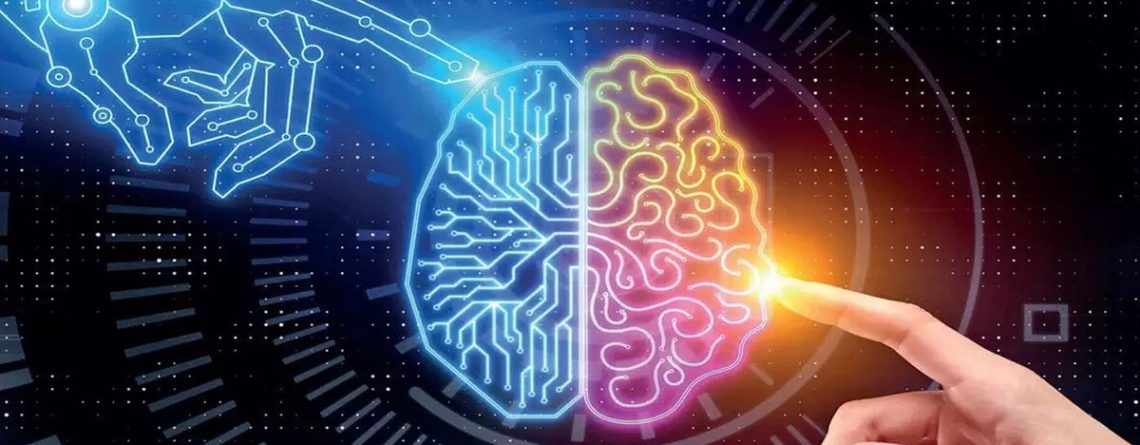Artificial Intelligence (AI) has experienced rapid advancements, transforming various aspects of our lives, from healthcare and finance to entertainment and beyond. As AI technology continues to evolve, the concept of integrating AI directly with the human mind emerges as a fascinating and potentially revolutionary frontier.
This idea, once confined to science fiction, is becoming more plausible with ongoing research and technological developments. This blog delves into the current state of AI, the intricacies of the human brain, and the methods and implications of merging these two powerful entities.
The Current State of AI
AI has achieved remarkable progress in recent years, significantly impacting numerous fields. Machine learning algorithms are capable of predicting consumer behavior, diagnosing medical conditions, and even generating creative content. Despite these advancements, AI systems still face significant challenges, such as understanding context, emotions, and performing complex tasks that require human-like reasoning and intuition.
The current AI landscape sets the stage for exploring deeper integration with the human mind, aiming to overcome these limitations and unlock new potentials.
Also Read: What experts say about Iyrix?
Understanding the Human Brain
The human brain, a marvel of natural engineering, is responsible for our thoughts, emotions, and actions. It consists of billions of neurons that communicate through complex networks, enabling us to perceive, learn, and interact with the world.
Neuroscientists have made significant strides in understanding these processes, leading to the development of brain-computer interfaces (BCIs). BCIs have the potential to link the brain with external devices, allowing for direct communication and control, which is crucial for integrating AI with human cognition.
Shape the future of tech by joining Iyrix — your gateway to exciting opportunities and meaningful collaboration.
Looking to advance your software development?
Take a leap into the future with advanced technologies, expert mentorship, and superior support.
Schedule Free CallMethods of Integrating AI with the Human Mind
One promising method for integrating AI with the human mind involves Brain-Computer Interfaces (BCIs). BCIs enable direct communication between the brain and computers by detecting electrical signals generated by neural activity and translating them into commands. Currently, BCIs are used in medical fields to help individuals with disabilities control prosthetic limbs or communicate. Ongoing research aims to expand their capabilities, making them more accessible and efficient.
Neural implants represent another significant approach. Companies like Neuralink are developing tiny electrodes that can be embedded in the brain to interact with neurons directly. These implants have the potential to enhance cognitive functions, restore lost sensory abilities, and treat neurological disorders. However, they also raise ethical concerns regarding privacy, consent, and the potential for misuse.
Machine learning algorithms can also assist in cognitive tasks by analyzing vast amounts of data and providing insights. For instance, AI can aid in learning and memory retention by adapting educational content to individual needs. Predictive analytics can help individuals make better decisions by anticipating outcomes based on historical data.
Potential Benefits
Integrating AI with the human mind offers numerous benefits. Enhanced cognitive abilities could lead to improved problem-solving skills and creativity, while medical advancements could allow for the treatment of neurological disorders and the restoration of lost functions. Additionally, AI could provide personalized learning and work environments, tailoring experiences to individual preferences and needs. These benefits highlight the potential for AI to significantly improve quality of life and expand human capabilities.
If you haven’t joined the Iyrix community yet, we invite you to be a part of our journey in 2024. Together, let’s explore the boundless possibilities that unfold in the next chapter of Iyrix!
Conclusion
The integration of AI with the human mind represents a fascinating and potentially transformative frontier in technology. By enhancing cognitive abilities and improving quality of life, this integration holds immense promise. However, it also presents significant ethical and social challenges that must be carefully navigated. As we move forward, it is vital to engage in open discussions about the implications of this integration, fostering a future where AI and the human mind work together harmoniously for the betterment of society. Continued research and thoughtful regulation will be essential in realizing the full potential of AI-human integration, ensuring that this powerful technology is used responsibly and equitably.
Ready to innovate your software development?
Drive your business growth with cutting-edge technologies, professional advice, and dedicated support.
Set Up Free Call









